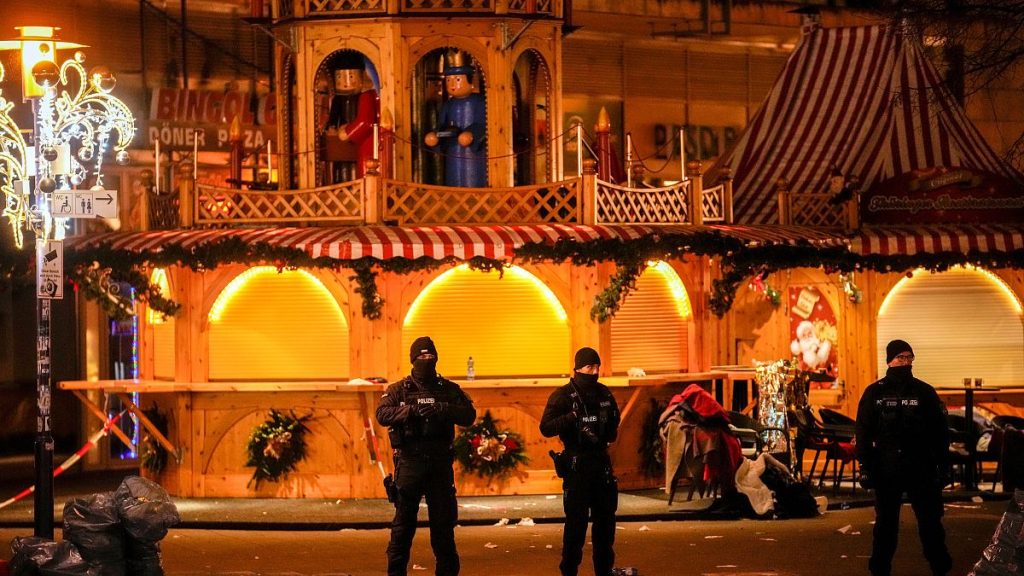The attack on the Magdeburg Christmas market reverberated across the Arab world’s social media landscape, igniting a firestorm of reactions fueled by existing sectarian, ethnic, and political fault lines. The official condemnations from governments like Saudi Arabia and Qatar were quickly overshadowed by a torrent of speculation, unverified claims, and attempts to tie the attack to various regional agendas. The alleged perpetrator’s reported renunciation of Islam and embrace of atheism became a central point of discussion, with many criticizing the perceived muted response from Western media compared to incidents involving Muslim perpetrators. This sparked accusations of double standards and a lack of appropriate attention to the tragedy. This narrative fed into existing distrust and grievances regarding Western media portrayals of Islam and the Middle East.
The reported Saudi nationality of the attacker, identified as Taleb A. in German media, further complicated the online discourse. Allegations circulated that Taleb A. was a dissident stripped of his citizenship by Riyadh, who had requested his extradition from Germany – a request reportedly denied by Berlin. Unverified claims, including a purported year-old WhatsApp conversation between a Saudi woman and German security services warning about a potential attack by Taleb A., proliferated online. This fueled accusations against Western nations for harboring dissidents under the guise of human rights protection, with some arguing that Germany was now reaping the consequences of this policy. The narrative wove a complex web of blame, linking human rights discourse with security threats and alleging a failure of Western governments to heed warnings.
Adding another layer of complexity was the attempt by some to connect the attack to Iran and its Shia population, particularly given the suspect’s purported origin in Qatif, a predominantly Shia region in Saudi Arabia. Social media users pointed to the suspect’s anti-Iranian and pro-Israel posts, while others drew links to Tehran’s support for the Syrian regime, framing the attack as potential retaliation against Germany for its protection of Syrian civilians. These claims underscored the deep-seated tensions between Iran and many Arab states, with the attack becoming yet another battleground for projecting existing geopolitical rivalries and sectarian divisions. This further highlighted how any incident with even tangential links to the Middle East is rapidly drawn into the vortex of regional power struggles.
Saudi Arabia faced sharp criticism from its opponents, who seized upon the attacker’s alleged nationality to call for restrictions on Saudi passports, framing this as a necessary measure to prevent future terrorism. This criticism reflects the ongoing political tensions and power dynamics within the region, with opponents of the Saudi government using the incident to amplify their critique of the kingdom’s policies and influence. The attack thus became a tool for advancing pre-existing political agendas, highlighting the interconnectedness of domestic and international politics in the region.
The conflict in Syria and the recent political changes in Damascus were also woven into the narrative. Some accused the attacker of being a supporter of the Assad regime, with some even going as far as to implicate the former president’s brother, Maher al-Assad, in orchestrating the attack through sleeper cells in Europe. Conversely, supporters of the new Islamist-dominated government in Syria linked the attacker’s purported Islamophobia to calls for secular governance in a post-Assad Syria, portraying “terrorism and apostasy” as two sides of the same coin. This demonstrates how the attack was refracted through the prism of the Syrian conflict, with different factions attempting to leverage the incident to bolster their narratives and demonize their opponents.
The attack also became entangled with the Kurdish issue. Supporters of the Kurdish community attempted to link the timing of the attack to Germany’s stance on Syrian Kurds and its calls for them to disarm and negotiate with the new Syrian regime. Conversely, others claimed the attacker was a supporter of the PKK and SDF. These competing narratives demonstrate how even a localized incident can become a proxy for broader regional conflicts and longstanding ethnic and political tensions. Ultimately, the Magdeburg attack highlighted the deeply entrenched divisions within the Arab world, where even a tragedy becomes an opportunity to advance pre-existing agendas and reinforce existing narratives of conflict and mistrust. The speed and ferocity with which these competing narratives spread online underscore the power of social media to both reflect and amplify the complex and often volatile dynamics of the region.














